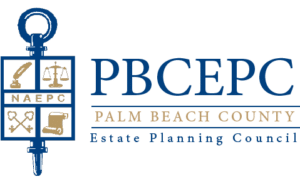
By Jay Rosen and Stuart G. Berman, CFE, CAMS
Capital Forensics, Inc.
It is estimated that hundreds of thousands of senior citizens over the age of 60 are physically abused and financially exploited annually. While all 50 states have passed elder abuse laws and have reporting mechanisms, these cases often go unreported. Elder people can be targeted for abuse by just about anyone, but are usually targeted by someone they know and trust such as family members, friends, caregivers, healthcare providers, attorneys, staff at care facilities, banks and other financial institutions. While abusers are comprised of both men and women, statistics indicate spouses and adult children are responsible for the abuse in two-thirds of the reported cases.
Financial elder abuse differs from physical abuse in that it is likely to happen with the consent of the senior, thus requiring more in-depth financial examination by an advisor. While fiduciaries and other advisors might have found the various privacy rules and requirements an obstacle to elder abuse reporting, the Senior Safe Act, signed into law on May 24, 2019, allows financial professionals to report an allegation of potential elder exploitation to an appropriate agency or covered agency without fear of violating any privacy requirements. Moreover, the Securities and Exchange Commission, the North American Securities Administrators Association, and the Financial Industry Regulatory Authority (FINRA) created and disseminated training materials encouraging financial professionals to detect and report allegations of senior exploitation.
Fiduciaries and other advisors looking for signs or examples of fraudulent financial transactions, should especially pay attention when several signs are present at the same time. A single indicator may not be indicative of elder exploitation, as there might be a reasonable explanation. Nonetheless, a fiduciary and/or other advisor must inquire and request information from the senior on all accounts, and from all sources to gain a thorough understanding of the elder person’s financial affairs. The common theme is “changes,” as changes of any kind to an account, often indicate potential issues.
Discovering elder abuse is a process that requires personal inquiry and document intensive reviews, and while the following list is not all-inclusive, it should provide fiduciaries and other advisors prompts to begin such inquiries:
- Home repair, email, predatory lending, high-pressure tactics reverse mortgage, and charitable donation schemes are prevalent and often target seniors. Email, credit bureau information, lending documents, credit card statements, bank statements, contracts, invoices and materials should be reviewed and intensely scrutinized.
- Securities fraud schemes range from promissory note Ponzi schemes to excessive trading and everything in between. Other financial abuses directed towards elders include conversion of customer assets, and excessive withdrawals or activity of any kind. Financial advisors often target the elder community for their savings and wealth accumulation. Inquiry should begin with a review of the brokerage statements, a conversation with the senior and a calculation of profit and loss. The fiduciary can seek further information from the financial advisor, and file complaints with the financial advisor’s manager and FINRA, a government-authorized not-for-profit organization that oversees U.S. broker-dealers.
- The use of deception to coerce an elder person to sign a deed, power of attorney, will, insurance policy beneficiary designation, or other assignment of assets is frequent and is often perpetrated by a family member. In these types of cases, the fiduciary or other caregiver should begin with a careful review of the original documents and a conversation with the senior to determine the senior’s wishes and intent.
- Abrupt changes in title, signatories, account status, wills and trusts, credit, and use of professionals may indicate potential exploitation, and should be carefully examined by the fiduciary or other advisor.
- A fiduciary and/or other advisor must also closely examine any instance in which an elder person suddenly seeks to add an unknown person such as a “long lost relative” to an account.
Any case in which the older adult is in imminent danger, should result in an emergency call to 911. Barring those exigent circumstances, there are, thankfully, efficient reporting mechanisms in place. Though the process for reporting is different in every state, each state has an adult protective services system. In Florida, the Department of Children and Family Services Adult Protective Services provides for reporting via Florida Abuse Hotline at 1-800-96-ABUSE (1-800-962-2873) or online at https://reportabuse.dcf.state.fl.us/Adult/AdultForm.aspx. To register concerns about brokerage accounts or investments, the FINRA Securities Helpline for Seniors, 800-574-3577, is available Monday – Friday from 9 a.m. -5 p.m. Eastern Time. In addition to FINRA, each state has a securities division to protect the investing public. The Florida Office of Financial Regulation (OFR), Division of Securities can be reached at 850-487-9687. Complaints can also be filed via OFR’s Regulatory Enforcement and Licensing (REAL) System at https://real.flofr.com/datamart/loginFLOFR.do.
It is very unfortunate that unscrupulous individuals exploit the vulnerable, making it even more important for seniors to have a strong support network. Relatives, friends, fiduciaries, and other advisors are the best defense against abusers, and should be alert to any warning signs of abuse.
Jay Rosen, with more than 40 years securities industry experience, founded Capital Forensics, Inc. (CFI) in 1993. Jay is a recognized expert in Broker and adviser conduct, ERISA, Trustee duties amongst other related investment areas.
Stuart Berman, a retired Special Agent In Charge, General Services Administration, Office of Inspector General, joined CFI as a Director of Risk Management and Investigations.
